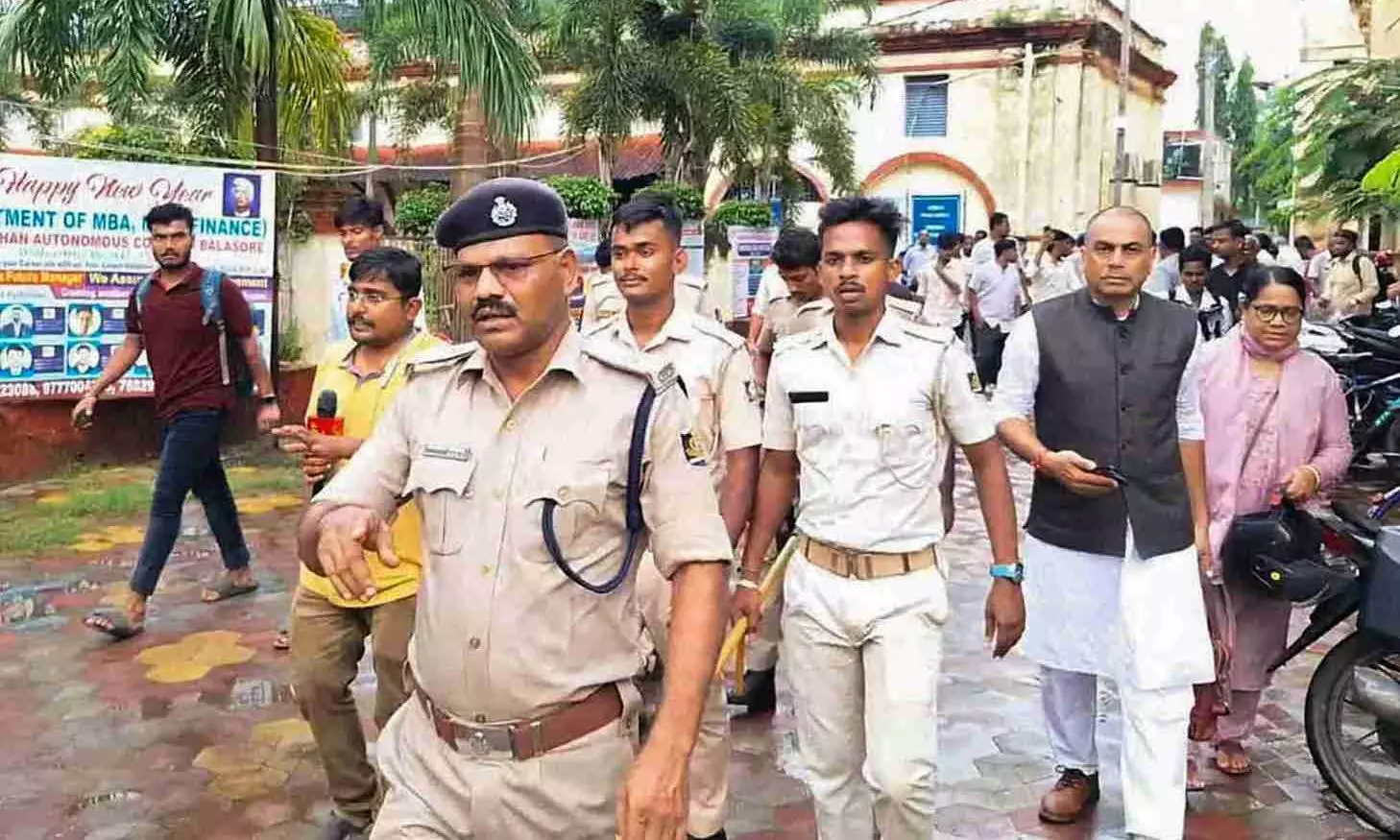
Balasore student self-immolation: Two more, including ABVP leader, held
The woman student set herself on fire after her sexual harassment complaint against a professor was not validated by the college

The Crime Branch of the Odisha Police has arrested two more persons, including the state joint secretary of the Akhil Bharatiya Vidyarthi Parishad (ABVP), in connection with a student’s self-immolation on the campus of Fakir Mohan (Autonomous) College in Balasore last month.
Also Read: BJD workers hold protest on student self-immolation case, Odisha Police use water cannons
ABVP member held
According to a senior officer, the arrests were made late on Sunday (August 3).
"The arrested persons are Jyoti Prakash Biswal, a student of the college, who had sustained burn injuries in an attempt to save the woman, and Subhra Sambait Nayak, the state joint secretary of a student organisation," the officer said.
ABVP leader Subhat Sandeep Nayak and Jyoti Prakash Biswal were allegedly present when the student set herself on fire outside the principal’s office at Fakir Mohan Autonomous College in early July, officials said on Monday (August 4).
Biswal was recently discharged from the SCB Medical College Hospital in Cuttack after recovering from burn injuries. The Crime Branch picked up both individuals from their respective residences late on Sunday.
They were produced before the Sub-Divisional Judicial Magistrate (SDJM) in Balasore the same night and remanded in judicial custody for 14 days after their bail petitions were rejected.
Student self-immolation
The 20-year-old woman allegedly set herself on fire after the college’s internal enquiry committee failed to validate her sexual harassment complaint.
The victim, a second-year BEd student, had accused the Head of the Department (HOD) of Integrated BEd, Sameer Ranjan Sahoo, of repeatedly seeking sexual favours, threatening her with adverse academic consequences, and mentally harassing her.
Further probe also revealed that HOD Sahoo had mobilised a group of students against the victim, allegedly to pressure the administration to take action against her.
Also Read: Odisha student who set self ablaze dies; CM vows strict action against culprits
Sexual harassment complaint
After her complaints were allegedly ignored by the college administration led by principal Dillip Ghose, she poured petrol on herself and self-immolated in front of the principal’s office on July 12.
She sustained 95 per cent burns and succumbed at AIIMS Bhubaneswar on July 14.
Investigation revealed that the woman killed herself — immediately after a meeting with the principal — over non-validation of her complaint to the college's Internal Complaints Committee (ICC).
It is alleged that she was shamed and pressured during the meeting to withdraw her complaint. Her family stated in the FIR that the principal told her she would be driven to suicide if she did not retract the allegations.
HOD, principal arrested
Earlier, the police arrested Sameer Ranjan Sahoo and former principal Dillip Ghose on charges of abetment to suicide, sexual harassment, and outraging the modesty of a woman. Both were suspended from their posts.
In several video footages, Subhra Sambit Nayak was seen arguing with the principal on behalf of the deceased girl and demanded action against the accused teacher.
During investigation, crime branch officials had questioned students, teachers, parents and journalists and examined video evidences during past several weeks. Some more arrests are likely to be made in the case.
Also Read: Student suicide growth rate in India higher than overall trend, population growth: Report
Political ramifications
This tragic incident has sparked a political uproar, with opposition parties demanding accountability from the Odisha government and alleging attempts at a cover-up.
The case has also raised serious concerns about the implementation of mandatory Internal Complaints Committees (ICCs) under the Sexual Harassment of Women at Workplace (Prevention, Prohibition and Redressal) Act, 2013, and the UGC’s 2015 regulations.
In response, the state government issued directives to ensure ICCs are established across all educational institutions.

